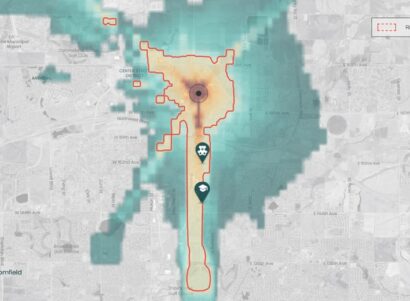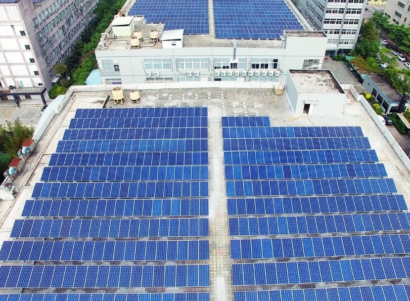PSE Healthy Energy and the University of California, Berkeley partner to develop targeted solutions to climate and public health impacts throughout California’s Contra Costa County
OAKLAND, CA – On Monday February 27, the U.S. Environmental Protection Agency (EPA) announced that nonprofit research institute PSE Healthy Energy has been awarded $1,350,000 to study local disparities in exposure to air pollution, heat, and humidity throughout Contra Costa County. The Contra Costa Climate, Air Pollution, and Pregnancy Study will be conducted in partnership with the University of California, Berkeley and will analyze birth outcomes and develop targeted solutions to protect the region’s most vulnerable populations.
“We know that climate change is already increasing exposure to air pollution, extreme heat, and humidity and that these events increase health risks, particularly for vulnerable populations,” said Elena Krieger, director of research at PSE Healthy Energy and principal investigator for the study. “Our aim is to better understand how these exposures relate to birth outcomes and to work with communities and policy makers to develop targeted, community-led, and effective interventions.”
The study will leverage PSE Healthy Energy’s Richmond Air Monitoring Network (RAMN) in combination with additional low-cost air monitors in place throughout Contra Costa County, enabling the team to study local variations in exposure across the region. Over the course of three years, the study will assess disparities in exposure to air pollution, heat, and humidity and their relationship with birth outcomes. The researchers will also assess areas and populations facing the greatest increase in risk from climate change impacts, such as increased heat, humidity, and wildfire smoke.
“Low-cost air pollution sensors can help us understand microscale variations in exposure to air pollution, temperature, and humidity. This more granular understanding can help us uncover how local climate impacts may compound socioeconomic risk factors, such as poverty, low educational attainment, and linguistic isolation, and lead to greater exposure and health disparities,” said Ajay Pillarisetti, assistant professor of Environmental Health Sciences at UC Berkeley and the study’s co-principal investigator.
In the final phase of the project, researchers will work with the identified populations and communities to co-develop a suite of interventions to mitigate exposures, ranging from house-level retrofits to community planning measures such as tree planting. The team will use a mix of cost-benefit and distributional analyses, incorporating community-identified priorities and strategies, to identify policy solutions.
The research grant is part of the EPA’s Science to Achieve Results (STAR) program and was part of $21M in research grant funding announced to investigate cumulative health impacts of climate change on underserved communities.
###
About PSE Healthy Energy
PSE Healthy Energy is a nonprofit research institute dedicated to supplying evidence-based scientific and technical information on the public health, environmental, and climate dimensions of energy production and use. We are the only interdisciplinary collaboration focused specifically on health and sustainability at the intersection of energy science and policy. Visit us at psehealthyenergy.org and follow us on Twitter @PhySciEng.














